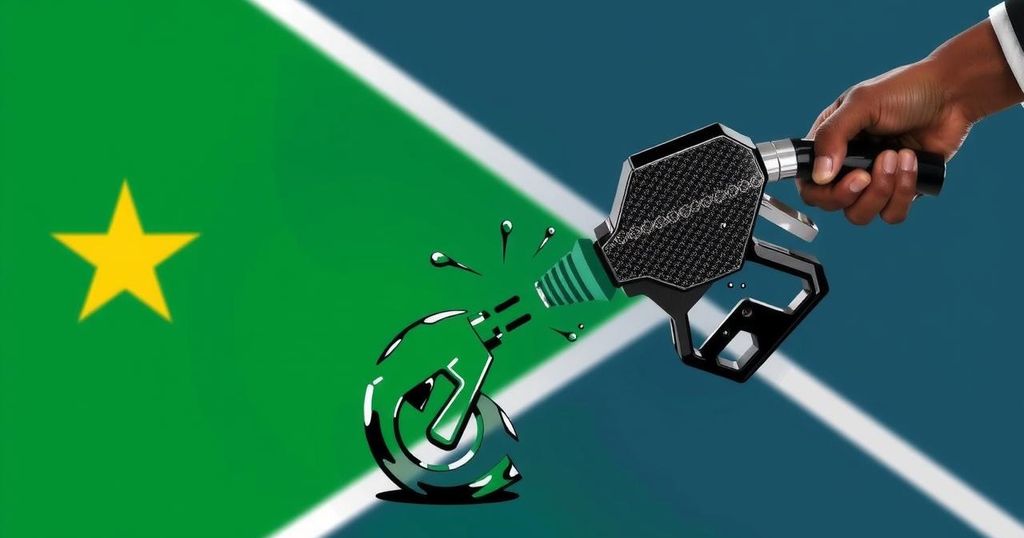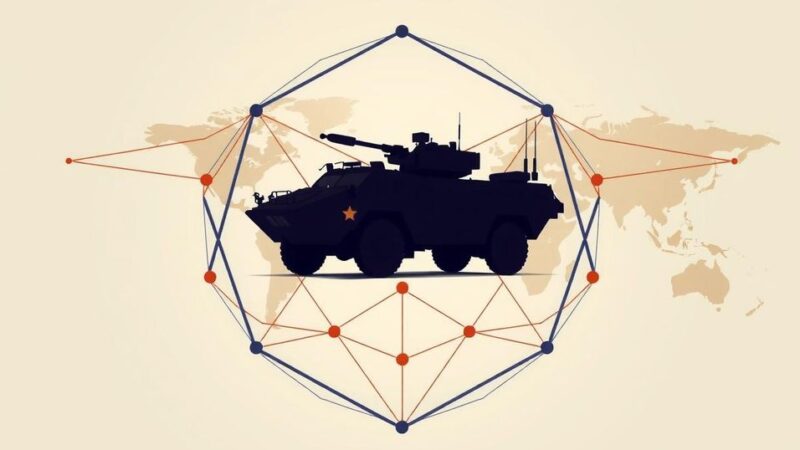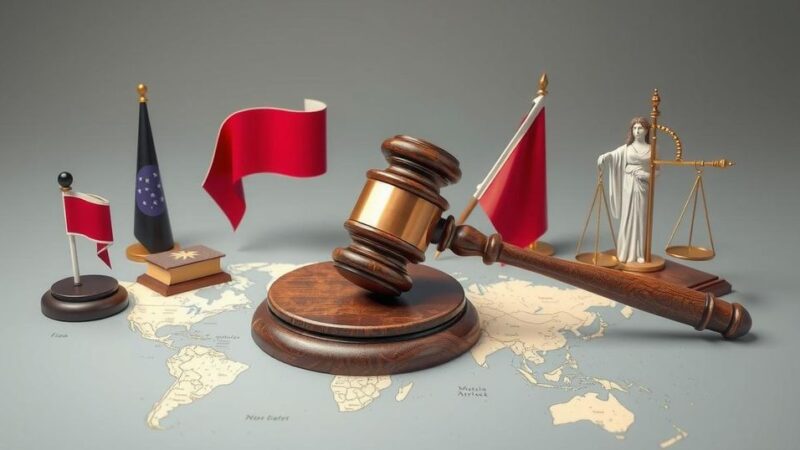The South Sudan Revenue Authority has suspended the E-petroleum Accreditation Permit fee on fuel imports from Kenya following complaints from businesses and NGOs regarding its legality and its impact on the economy. Implemented in March 2024, the levy faced opposition for increasing fuel prices and complicating humanitarian efforts. The SSRA has requested the removal of all related fees, emphasizing their negative effects on the market while committing to cover service costs.
The South Sudan Revenue Authority (SSRA) has announced the suspension of the controversial E-petroleum Accreditation Permit fee, which was imposed on petroleum products imported into Juba from Kenya. This decision comes after seven months of enforcement and significant opposition from various stakeholders, including businesses and non-governmental organizations, who argued that the levy is burdensome and illegal. The fee, implemented in March, was criticized for exacerbating the financial challenges facing South Sudan’s economy, directly impacting fuel prices and threatening the continuity of essential humanitarian assistance to the nation. At the heart of this dispute is a partnership involving Crawford Capital International Ltd and its local affiliate, Capital Pay Ltd, which was contracted by the South Sudanese government to collect the levy at different exit points in Kenya. There were allegations that these firms exploited importers and exporters by imposing high charges, including fees for the E-petroleum Accreditation Certificate and fuel marking, adding to the operational costs associated with transporting fuel to South Sudan. In an official directive dated October 5, 2024, the SSRA mandated the immediate removal of all charges related to the Trade Accreditation Permit Certificate. SSRA Commissioner for Corporate Services, Daniel Kon Ater, stated, “The South Sudan Revenue Authority (SSRA) would like to request the removal of all charges and fees related to the Trade Accreditation Permit with immediate effect. However, the certificate should remain mandatory free of charge as mentioned. The reason being the negative impact it is creating against commodity prices in the market.” Furthermore, Dr. Ater clarified that the South Sudanese government would cover the costs of related services, as previously agreed upon in a contract signed in March 2024. The previously enforced levies, which included fees totaling approximately $1,944 for a single truck carrying 36,000 litres of fuel, were aimed at funding the operations of Crawford Capital Ltd, among other expenses. Although a civil suit challenged the legality of this levy, the court had initially declined to halt its implementation. The Kenya Revenue Authority confirmed the role of Crawford Capital as the appointed customs agent for South Sudan, responsible for various customs procedures and fee collection related to fuel imports. As South Sudan navigates this complex situation, it is crucial to monitor the implications of the suspension of the fuel levy on both fuel prices and humanitarian efforts in the region. Despite assurances from government officials, stakeholders remain vigilant regarding any future charges that may impact the economy further or impede the flow of essential supplies to those in need.
The South Sudan Revenue Authority (SSRA) recently responded to mounting grievances regarding a fuel levy that had been imposed on petroleum imports from Kenya. This levy, which had been in effect since March 2024, was established to facilitate the collection of fees by a private joint venture tasked with managing fuel imports. The legislation surrounding this levy has faced significant scrutiny from various sectors, including local businesses and international aid organizations, highlighting the broader economic challenges experienced within South Sudan. With the country grappling with existing economic difficulties, stakeholders were particularly concerned about how these levies would exacerbate the price of fuel and hinder the provision of humanitarian supplies. This context is essential in understanding the SSRA’s decision to suspend the levy and the associated implications.
In conclusion, the SSRA’s suspension of the controversial E-petroleum Accreditation Permit fee reflects a critical response to concerns regarding the adverse impacts on the South Sudanese economy and humanitarian efforts. As the nation strives to manage its economic challenges, the government’s commitment to eliminating unnecessary financial burdens on fuel imports is an essential step towards stabilizing fuel prices and ensuring accessibility to vital supplies. While the suspension marks a pivotal moment, stakeholders must remain watchful of future developments regarding levies and fees that could affect economic recovery and humanitarian initiatives in South Sudan.
Original Source: www.theeastafrican.co.ke







